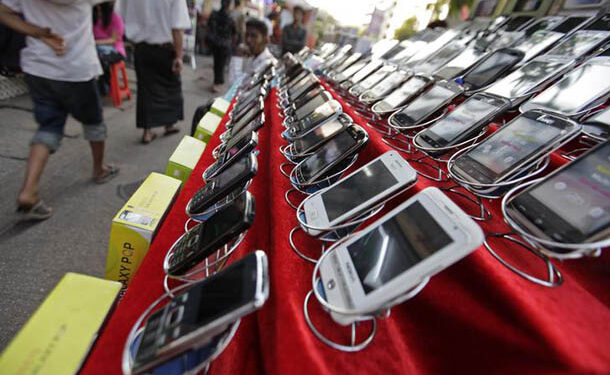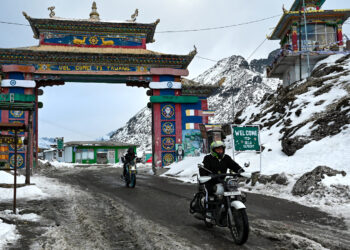RANGOON — The Central Bank of Myanmar (CBM) revealed on its website on Monday the official rules and regulations for mobile financial service providers (MFSPs), seen by observers as a way to reach more rural customers throughout Burma.
The regulations detail the application requirements, such as how to acquire a registration certificate and pay relevant fees and charges. They also outline MFSP duties, including permitted mobile financial transactions and measures to ensure customer protection.
Proponents of mobile banking trumpet it as a way to dramatically expand financial services in Burma by assisting mobile operators—partnered with banks—to reach those in rural areas with limited access to physical bank branches and who might have irregular income, which not uncommon in a country relying heavily on agriculture.
This could also spur Burma’s burgeoning telecommunications industry.
“It’s good that telecoms companies will now be able to do mobile financial work legally,” Zaw Lin Htut, chief executive officer of the Myanmar Payment Union, told the Irrawaddy.
“It’s also good for financial inclusion. However, they [MFSPs and banks] will need interoperability,” he said, referring to the capacity of one organization or system to work simultaneously and efficiently with another. This could involve “determining that telecoms providers can provide mobile money, remittance and payment services but not other bank services,” he added.
According to the CBM announcement, MFSPs can permit customers to open and maintain mobile accounts, deposit money into and withdraw from mobile accounts, and also transfer between their own mobile accounts. People-to-people, people-to-government, people-to-business and business-to-business money giving—among other services occasionally allowed by the CBM—will also be permitted under the regulations.
The CBM said that mobile financial service applicants will know whether they have been approved for a registration certificate within 90 days of the receipt of their application.
Soe Thein, executive director of the Asian Green Development Bank, sees the announcement as an auspicious sign for financial growth in Burma.
“The mobile money sector in this country will develop very rapidly because almost all private banks are attempting to expand their mobile banking services as much as possible. I hope this will help Burma’s development in the year ahead,” Soe Thein said.
Zaw Lin Htut echoed these sentiments, saying that “there will be more competition between bank and non-bank services soon,” leading to swift changes in the sector.
Recently, 22 private lenders were awarded bank licenses. Four telecoms operators currently run in Burma: Norway’s Telenor, Qatar’s Ooredoo, the state-owned Myanma Posts and Telecommunications (MPT) and three shareholders in a joint venture among local and foreign firms.

















